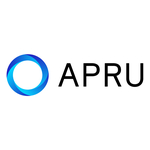Energising correspondent banking
 Reports of the death of correspondent banking are highly exaggerated. But the business model is changing and Swift hopes its Global Payments Innovation Initiative will improve cross-border payments.
Reports of the death of correspondent banking are highly exaggerated. But the business model is changing and Swift hopes its Global Payments Innovation Initiative will improve cross-border payments.
Swift is often accused of moving slowly, yet the Global Payments Innovation Initiative (GPII) gives lie to that. First discussed at Sibos 2015 in Singapore, Swift will be making a big noise about the Initiative at this year’s event. In less than a year, more than 70 correspondent banks have signed up to the GPII, which promises to deliver greater speed, transparency and end to end tracking in international payments. Critics would argue that it has taken Swift and its member banks decades to address corporates’ concerns and are doing so now only because of competition from non-banks.
As a part of the Initiative, banks will follow a set of strict business rules for cross-border payments that have been designed by Swift in collaboration with the participating banks. GPII banks will be able to give their corporate treasury clients a dramatically improved payment experience, with same-day use of funds, predictability and transparency of fees, end to end payments tracking in real time and the provision of rich remittance data for clients. These are all requirements that have been voiced by corporates over the years.
To enable payments tracking, Swift is developing and will host a cloud-based database. This will provide visibility on the status of a payment transaction, from the moment it is sent until it is confirmed, similar to tracking services provided by international shipping companies.
Wim Raymaekers, global head of banking market, Swift, says the GPII has been developed in a fast, yet controlled way. “We want to make sure that banks are ready to provide such services and we don’t want to create too much expectation among their corporate customers before that is the case.” The initial focus will be on the establishment of strong agreements between banks and ensuring that banks are able to improve their systems to meet the aims of the Initiative.
A spokesperson for Bank of China (BOC), one of the more active GPII members, says the Initiative will drive a “multilateral win-win effect”. He adds: “Change or innovation led by Swift usually has a significant impact on the global financial community that is far beyond any individual financial entity’s commitment. GPII brings vigour into the global financial industry.”
Greg Murray, head of global product management for high value payments and FI/NBFI products at Bank of America Merrill Lynch, another early adopter, says the bank “felt it was the right time to review options for improving the correspondent banking payment model. On the one hand the existing model is very mature, well-governed and efficient; but on the other hand it has elements that are not in keeping with current times.”
The fact that during the past 20 years access to information has become almost instant and available to everyone through the internet has influenced expectations among corporate treasurers. He adds: “Corporate treasurers who in their personal lives have instant access to information, expect the same experience in their working lives. GPII is the most feasible way to achieve that in correspondent banking.”
Correspondent banking is by its very nature global and Swift has signed up banks from all corners of the world; together they do nearly 75 per cent of all cross-border payments on the Swift network. Among them are Axis Bank, Bank of China, Banco do Brasil, Bangkok Bank, Bank of Nova Scotia, Credit Agricole, Icici Bank and Sberbank. Ajay Gupta, senior general manager at India’s Icici Bank says: “The GPII is one such initiative where we believe that our clients will immensely benefit with same-day credit, increased visibility and certainty of charges. This will enhance the payments product in the correspondent banking portfolio, thereby enhancing our value proposition to corporate clients.”
Sidharth Rath, group executive, corporate and transaction banking at another Indian institution, Axis Bank, adds: “We are witnessing new technologies and innovative solutions in the payment space. In this dynamic payment scenario, we need to embrace new technologies and initiatives to constantly align our correspondent banking proposition to cater to the ever increasing needs of our customers.”
GPII will go some way to addressing the challenges of real-time payments in correspondent banking, says Emmanuel de Board, global head of cash clearing services at Societe Generale. “Under the system, payments will be announced immediately to the beneficiary, which can then reuse the funds even if the actual transfer is made at the end of the day. The transfer of information regarding the transaction will be enough.” In a real-time system, he adds, funds have to be transferred immediately, which requires real-time accounting systems on the part of banks. “Very few banks in Europe have such systems and to acquire them represents a significant investment.”
Results from a business to business payments pilot, which is planned to go live in early 2017, will be presented during Sibos. Also, regular demonstrations of GPII functionalities and the payments tracker will be run on the Swift Lab stand.
During April and May this year, representatives from more than 40 banks attended a series of workshops in Frankfurt, Singapore, London and New York. The meetings discussed digital transformation of cross-border payments. A client-centric strategy was established that will deliver additional data-enhanced payments services as part of the Initiative.
GPII is being deployed on existing technology, reusing the MT103 messages and banks’ existing payment engines and compliance filters, for example. Raymaekers says this will enable banks to deliver services to their corporate clients quickly. “We looked at new technologies such as distributed ledger, but believe that it is not yet ready today to be used for bank-grade applications.”
GPII is banks’ and Swift’s response to the new, innovative entrants in financial services. Says Murray: “In the background, we have financial technology companies introducing improvements to the user experience, providing a simpler and better way to shield corporate treasury customers from payments infrastructures. This has put pressure on banks to do the same thing.”
He believes Swift is in the best position to transform the correspondent banking model. “Although some commentators claim the correspondent banking model is dead, it is still the best and most efficient way to transmit large value payments across borders. The task now is to make these transactions even better and more efficient,” says Murray. Given the vastness and global nature of Swift’s membership, the organisation “clearly is in the best position to create standards and communicate these to thousands of banks around the world”, he adds.
Among the innovative new entrants in payments is Ripple, which argues that the future for cross-border transactions “requires more than a service level agreement update”. Meghan Elison, social media marketing associate at the company, wrote in June that global payments need fundamental change and a system designed with the scalability, flexibility, efficiency, security and redundancy of the internet. “Cross-border payments make up $22.5 trillion annually and are increasing at a rate almost three times faster than the global GDP.” However, she writes, current payment rails aren’t equipped to support real-time settlement for transfers in any amount nor do they have transparency in costs or payment status and settlement risk. While the same-day settlement that will be delivered by GPII “is an improvement”, she adds: “We don’t believe it will keep up with… businesses’ expectations for on-demand payments.”
According to Elison, GPII doesn’t address the “antiquated” infrastructure that makes real-time settlement a constant challenge. “GPII does not change the underlying infrastructure at all, it merely makes a minor adjustment to its current settlement requirements.”
There also has been some criticism that corporates were not involved in the early GPII discussions. Raymaekers responds: “We have engaged with corporates in an organised fashion and banks have said they want to engage more closely with them on this topic in the future. At Sibos this year for instance, we will conduct joint corporate and bank sessions on GPII.”
Matthew Williamson, global head of payments at vendor Misys says GPII is a clear drive towards defining industry standards that if it can be brought together in real-time with KYC initiatives “will certainly be interesting, but it must be given proper attention and thorough due diligence.” Williamson says the Initiative is an enabler for real-time processing across the full payments lifecycle. “A member bank will be able to generate a global unique transaction reference for GPII-qualified payments and process these payments as a matter of priority. But it could also create a lot of additional work before banks feel the benefit.”
Bank of China embraces GPII
Bank of China was the first GPII participating bank from China and is one of the leading banks in terms of project implementation.
GPII is particularly relevant for Chinese banks and corporates as an increasing number of Chinese companies are exploring overseas markets, buoyed by the strong economic growth and competitiveness of Chinese companies. Efficiently managing the funds flow of overseas companies has become their common concern under the trend of economic globalisation. The chief financial officer of a large multinational corporation in China says: “Via the global cash management services enabled by GPII, Bank of China is able to introduce visible, controllable funds monitoring and a better solution to group cross-border liquidity management.”
GPII will further improve BOC’s cash management capacity for corporates. First, it will enhance the level of account management of a corporate’s global account information. BOC’s cross-border account investigation service will enable corporates to look into their account balances and transactions globally via online banking or Swift messages on a 24×7 basis, realising centralised account management. Through the real-time processing and same-day credit facilities supported by GPII, the time efficiency in cross-border cash movement for a corporate group is secured. The BOC spokesperson says this will enable the centralisation of a corporate’s onshore and offshore liquidity and provide high levels of efficiency. “Last but not least, we can track the status of the payment and predict its charges. GPII requires participating banks to provide status reports to the originator immediately after processing. It offers the transparency and predictability of payment charges, which helps the corporate to control their financial expenditure,” he says.
He believes GPII will help build stronger ties among banks globally by setting new payment business cooperation models. The cloud-based common data platform will reduce the “friction factor” of information transfer among banks and fast information sharing including single payment, compliance data and local payment system information can be secured. This will fundamentally enhance the efficiency for interbank payment information exchange.










































